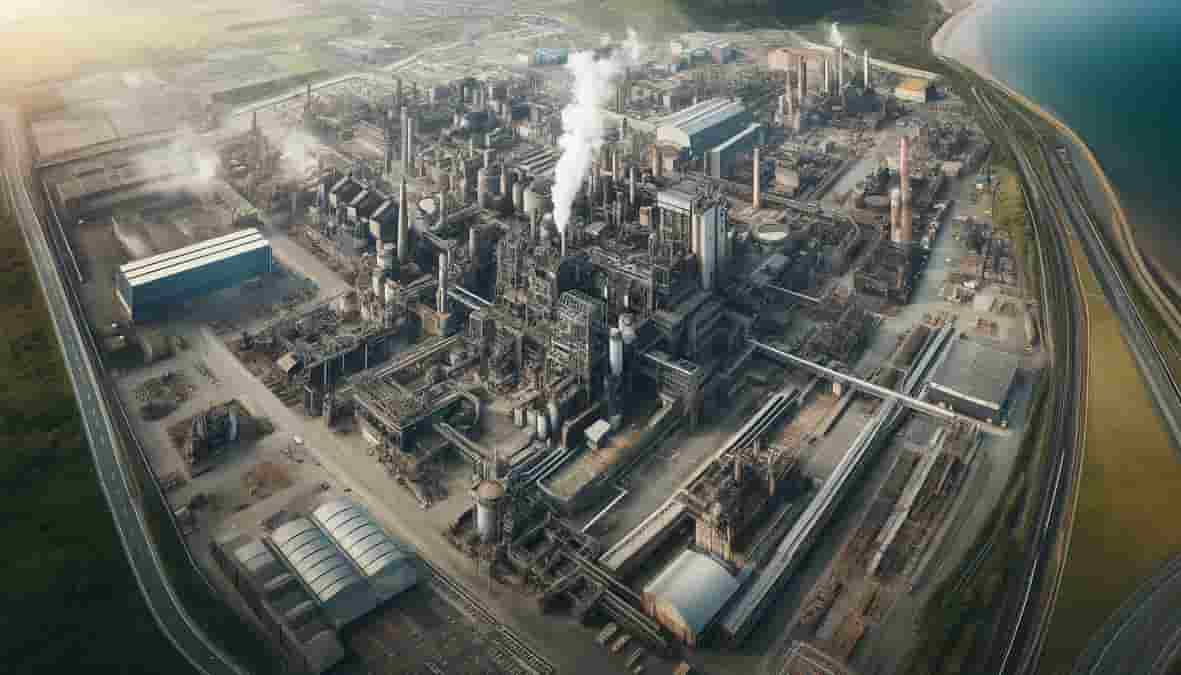In a continuation of a pivotal discourse surrounding the future of steel production at Port Talbot, Tata Steel has firmly reiterated its stance in the face of potential political shifts. The India-based company warns against any deviations from its plan to replace the site’s old blast furnaces with more sustainable technology, despite Labour’s appeal for a delay in anticipation of the upcoming general election results.
Previously, The Workers Union reported on the divide among Port Talbot steelworkers regarding the decarbonisation initiative and their concerns about job security (“Port Talbot Steelworkers Divided Over Decarbonisation Plan Amid Job Security Concerns“). Tata Steel’s latest statement builds on the narrative, emphasizing the irreversible impacts of delaying their £1.25 billion investment plan which includes transitioning to Electric Arc Furnace (EAF) technology—a move supported by a £500 million government grant aimed at fostering a green manufacturing hub in South Wales.
The plan, as detailed in previous discussions, involves the phasing out of the labour-intensive production methods currently employed at the sprawling South Wales site. Tata Steel has projected a cessation of operations for Blast Furnace #5 by the end of June 2024, with the subsequent shutdown of Blast Furnace #4 by the end of September 2024. The urgency of these changes is underscored by the financial losses reportedly amounting to £1 million a day, a situation compounded by the operational instability and unsustainability of the current heavy end assets.
Despite the imminent electoral outcomes, Tata has dismissed the possibility of postponing these decommissions. The company has expressed a resolve to continue with its restructuring program, aimed at reviving profitability while ensuring the longevity of steelmaking in Britain. This position was made clear during a recent article we covered in “Tata Steel Warns of Reduced Redundancy Terms if Workers Proceed with Strike”
This ongoing situation places a spotlight on the intersection of industry, politics, and community welfare. As Tata Steel navigates these complexities, the implications of their decisions extend beyond the gates of Port Talbot, hinting at the broader challenges faced by traditional industries amid global shifts towards sustainability.
The Workers Union Says…
“As we continue to cover this evolving story, it becomes increasingly clear that the future of British steelmaking hangs in a delicate balance, influenced by political, economic, and environmental factors. The outcome of the upcoming election could play a critical role in shaping the strategies employed to ensure both the industry’s survival and its adherence to environmental commitments.”




